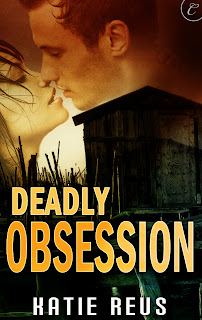
“Frankly my dear, I don’t give a damn.”
Familiar with this line of dialogue? If you said yes, then you are in good company with millions of people who recognize this line from Margaret Mitchell’s novel Gone With the Wind. Dialogue is critical to any novel and is an important tool to develop your characters and give the reader insights into their deepest feelings, fears and emotions. When dialogue is good, you don’t even notice the pages flying by. When it’s bad, well, it’s awful.
Every writer needs to use dialogue to make their characters come alive – it makes them real to the reader. The narrative part of the story, including the setting and the action, is important, but it's dialogue that makes your characters human. To help illuminate the importance of dialogue, I’ve outlined ten points to remember when writing:
1. Use dialogue to express internal and emotional turmoil of your characters. Many times the way someone says something means more that what they actually said. Also to whom your characters speak to and in what manner is important.
2. Stories tend to move faster when there is more dialogue. Dialogue should be a very active part of your story. If you re-read your manuscript and find pages and pages of narrative, backstory and/or internal musing, the odds are that the reader will find the pace slowed considerably. See if there is a way to rewrite some dialogue into all that narrative.
3. Use dialogue to show the reader your protagonists’ relationships to other characters in the story. This is a great way to show instead of tell.
4. Use dialogue to heighten sexual tension. Words can often have more than one meaning. Use that to your advantage.
5. Remember to ensure your character is speaking properly. Is she high-bred or lower-class? From the city or the country? From the North or the South? Ages affect the way characters speak – is he 25 or 55?
6. Use dialogue to replace narrative if the story seems slow. If weather is important to the story, have the characters chat about it, instead of having someone looking at it and thinking how cloudy it is.
7. If a character is alone and there is no way to bring another character into this particular scene to break up the narrative, then I sometimes have my characters speak aloud to themselves. It can be humorous and, of course, as someone who often speaks to myself, I can identify with this and it makes my character seem more human.
8. Everything the character says should be important to the story. Your novel has no room for incidentals, nonsense or pleasant chit-chat that isn’t leading up to something. If you see it in your manuscript – cut it. Extraneous dialogue will slow your pacing.
9. Everything your characters say must somehow be connected – there should be a thread running through the story, including what the characters say and do.
10. Dialogue must be appropriate to the genre in which you are writing. Read books in the genre, the line and the publisher you are targeting. This is very important. Sci-fi writers approach dialogue in a way different than those who write mysteries and those who write romances. While the basic rules for using dialogue still apply, there are particular nuances that are unique to each genre.
Now, having said that, what is your favorite line of dialogue in a book or movie? Is there a memorable line of dialogue that will always be linked in your mind to a particular moment in the story? I’ll start by saying I love many of the one-liners in the Arnold Schwarzenegger movies, such as in the Terminator when he says: “I’ll be back.” How about you?























